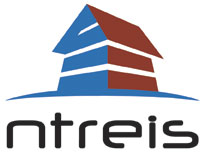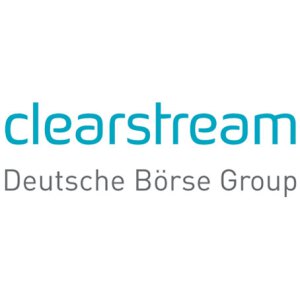Published
- 01:00 am

- Pomanda is a platform for investors, advisers, professional service providers and the business owners they engage with.
- The first platform to be built around the transaction journey – no matter which stage or side of the deal you are on.
- Gives users the tools to value companies, conduct business analytics and connect to deal-flow in a confidential and secure space.
- Combines cutting edge technology, industry insight and academic research to modernise corporate finance.
An innovative online platform which allows advisers and investors to evaluate business opportunities, connect discreetly with business owners and source mandates they would otherwise struggle to reach, has launched today. Pomanda PRO utilises cutting edge technology to seamlessly link investors and professional advisers with business owners who are looking for investment, providing the tools to produce accurate company valuations in a confidential environment.
Richard Bland, CEO, Pomanda, commented: “The concept for Pomanda PRO evolved from the genuine need amongst investors and professional advisers to find a more progressive, transparent path to serious business owners who are at the right stage in their company’s evolution. Reaching businesses who are thinking about selling all or part of their interests can be tricky even for the most well-connected investor or adviser. There are millions of small businesses in the UK, but only a fraction of those will ever reach the stage where they seek outside investment so advisers can end up wasting resources chasing the wrong leads.
“The Pomanda Pro package allows users to connect with our Pomanda CEO users. Through our unique CEO service, we build early relationships with Private Companies, giving them the tools and the knowledge to engage with Finance when they are ready. Giving PRO users the opportunity to connect with mature, motivated, realistic businesses across the UK at the start of their Corporate Finance journey.
“Pomanda has built the tools that take the hard work out of sourcing, evaluating and transacting business prospects cost effectively and discreetly – business or adviser/investor details will never be revealed until they are comfortable doing so.”
The Pomanda PRO package delivers detailed financial valuations. Based on established Corporate Finance techniques combined with academic theory from valuation expert Professor Aswath Damodaran, the calculator automatically pulls in data from Companies House as a starting point and allows manual input to model different scenarios.
Users can access Pomanda’s online ‘Deal Room,’ to view live M&A activity in their area, and connect with companies looking to transact or use the Finance Room where they can connect with businesses looking to raise debt.
Related News
- 04:00 am

New research released today shows that around 21million* current account holders may submit a Subject Access Request (SAR) to their bank after the General Data Protection Act goes live in May 2018. Around a further 8million** credit card holders will also ask for the information held on them.
The research, conducted by Exonar, a leading provider of General Data Protection Regulation (GDPR) data mapping and data inventory solutions, set out to identify what people know about how their privacy rights will change in May 2018. The findings showed that 70% of people have no idea about the changes. However, once GDPR and the term SAR was explained to them, 57% said they would raise a SAR.
The research also considered which sectors will be hit hardest. Financial services topped the charts with a third of people saying they would submit a SAR to their bank, 16% to their credit card provider, 8% their insurance company, and 5% to their loan company.
Other targets for SARs included social media companies (16.4%), mobile network providers (11%), utility firm (8%), and a retailer (5%). A futher 9% would ask a current employers and 4% an ex-employer.
Julie Evans, COO at Exonar, said companies need to make the most of the time they have before the Information Commissioner’s Office (ICO) starts its consumer publicity campaigns: “Companies often ask us how they can predict how many SARs they will receive. It’s an impossible task as so much of it will come down to consumer awareness.
“At the moment communication efforts from the ICO are focused on getting companies ready for the GDPR, but come next Spring, we expect the focus to change as they start to inform the general public about the changes. If the ICO succeeds in raising consumer awareness then, as this research shows, the floodgates will open. Businesses really do need to make the most of the remaining months to get their data house in order.”
The research found that people are worried about how their data is managed today: 27% are concerned their data could be sold, and another 27% said they worried about hacking.
As part of the research, it was explained that a SAR could run into hundreds of pages***. Almost a fifth (18%) stated ‘shock’ that a company could hold so much about them and everything they have ever done, with 15% saying that if they held that much information they would want to know exactly what it was and a further 10% went as far as to say they’d want companies to forget about them altogether.
There were also environmental concerns: a third of people (31%) said they thought SARs were a waste of paper and would prefer to receive them in a secure digital format - just over a quarter were surprised a SAR wasn’t digitised anyway. 12% said environmental concerns would put them off doing a SAR.
Evans adds: “Going digital should be at the heart of any GDPR strategy. New technologies like data mapping, big data and machine learning will make it easier for businesses to ensure personal information is easy to locate and secure. Technology can help everyone in a business to follow best practice and avoid the potentially hefty cost of failing to deal with SARs and comply with the GDPR.
“Aside from the cost, relying on manual processes is high risk. Going digital will make the process of finding and retrieving information quicker and cheaper, and also lessen the environmental impact of completing a SAR request.”
In order to offset the environmental impact of producing paper-based SARs and to encourage organisations to consider moving towards a digital process, Exonar is asking that for every SAR that is produced in paper a tree is planted or a donation is made to the Woodland Trust.
Related News

Dominic Allon
Vice President and Managing Director at Intuit Europe
Starting your own business can be challenging in today’s competitive and overcrowded market. see more
- 03:00 am

The ai Corporation (ai) has acquired SmartCentric Technologies International Limited (SmartCentric) for an undisclosed sum. SmartCentric, which was established in December 2002, is a specialist solutions company, focused 100% on secure payments and transactions, particularly in the Fuel Card market.
Dublin-based SmartCentric has been delivering solutions to the fuel industry for over 15 years, across multiple countries. In the last number of years, SmartCentric has invested significantly in its product portfolio and a cloud-based SaaS card management solution, providing an online authorization system, which supports offline activity based on agreed business rules.
After working together on several projects, the ai and SmartCentric management teams concluded that bringing the businesses closer together would provide a unique and compelling offering for the market. ai’s expanded cloud-based end-to-end payments solution is already attracting attention with new contracts recently being awarded in the Middle East (large reseller with 60 banks), in the US and South Africa, for two very large globally recognized fuel card operators.
Kieran Timmins, CEO of SC, said, “The combination of the SmartCentric’s cloud-based industry leading issuance and payment processing platform for fuel cards and ai’s payment processing and fraud detection solutions, provides a compelling, integrated solution that will deliver a comprehensive solution for our customers and a deeper experience for merchants and network partners.”
Dr Mark Goldspink, CEO of ai, said, “The ai Corporation’s unique end-to-end offering is constructed to target several gaps in the market place, namely:
- Providing state of the art business rules technology that allow customers to take control
- Offering a flexible and agile solution, so new customer features can be deployed quickly
- No CAPEX with “pay as you go” business model (controllable OPEX)
“ai enables our partners to do what they do best, running their businesses using the rich features of our payment platform, with the confidence that their transactions are protected by a best-of-breed fraud prevention system.
“Although this is technically an acquisition, ai and SmartCentric have been moving closer together for many months. The addition of SmartCentric to our existing suite of payment processing and fraud detection solutions has already received an enthusiastic reception from our customers.”
Related News
- 02:00 am

Financial services comparison website GoCompare has selected prevero on the Azure cloud platform to enable a more sophisticated finance planning environment.
Prevero’s solution replaces previous systems and processes with flexible and sophisticated planning and forecasting capabilities in the cloud. The new system will better capture data and strengthen GoCompare’s planning and modelling capabilities.
Specific benefits include the reduction of time spent on data validation, and an ability to drill down to the business drivers behind the financial forecast more quickly and efficiently, thereby allowing instant changes and what if scenario planning.
GoCompare undertook a thorough market evaluation before choosing prevero. Underpinned by Microsoft’s Azure cloud platform, it stood out in its Proof of Concept.
"We rely on customer data insight to make good business and planning decisions daily, so the speed and intelligence prevero can provide us with will be invaluable,” said Dominic Easton, Head of Finance at GoCompare. “Its advanced planning and modelling capabilities, innovative roadmap, the ability to handle granular data on a daily basis, and its quick implementation time were particularly impressive.”
"Prevero and (parent company) Unit4’s strategic alliance with Microsoft ensures customers like GoCompare benefit from the latest cloud platform technologies and rapid innovation, but also massive scalability, flexible security, data privacy and residency,” said Chris Dial, Senior Director, Cloud ISVs at Microsoft.
“We are delighted to be working alongside Microsoft to support GoCompare with its financial planning and analysis,” said Alice Allegrini, UK MD of prevero. “prevero enables business leaders to align strategy, finance and operations by making smart decisions in every part of their business. GoCompare recognises the value of a modern cloud solution to achieve their advanced planning and modelling requirements. Their finance team will be able to focus on the strategic and predictive planning required in a competitive and fast-changing business environment.”
Related News
- 04:00 am

North Texas Real Estate Information System (NTREIS) delivers next generation lead generation and big data search capability to its 35,000 members.
"The power of Remine is its simplicity to take property and people together to create opportunity for agents today. Whether you are a 10-year veteran or a first-day rookie, Remine is the platform of choice for agents of the future," said John Holley, CEO, North Texas Real Estate Information System (NTREIS).
Mark Schacknies, CFO of Remine, said, "At any given time, less than 2% of all properties are listed for sale in an MLS. That means that 98% all future opportunity is hiding off-market. Remine's predictive analytics make it easy to identify future buyers and sellers. Remine is lead generation on steroids."
Related News
- 05:00 am

The international central securities depository (ICSD) Clearstream is about to launch its service to support the cross-border bond trading and settlement scheme “Bond Connect”, linking the China Interbank Bond Market (CIBM) with the world.
The new service replicates Clearstream’s Stock Connect offering for China A-shares where global bank Citi acts as Clearstream’s local sub-custodian. Today, Clearstream customers already benefit from direct access to the China onshore bond market via Clearstream’s China Bond Link. The new link complements this direct access link, which was launched last autumn.
Bond Connect is a new mutual access scheme that allows institutional investors from Mainland China and overseas to trade in each other’s bond markets through a connection between related Mainland and Hong Kong financial infrastructure institutions. The first phase of the scheme - Northbound trading - went live on 3 July 2017, facilitating foreign institutional investors’ access to China via the Hong Kong market.
With nearly USD 10 trillion the CIBM is the third largest bond market in the world. The launch of Clearstream’s Bond Connect link is part of the company’s ongoing commitment to provide international customers with enhanced access to the Chinese market. Overseas investors will benefit from the ICSD custody and connectivity infrastructure as well as standard suite of value-added services, including corporate action processing and reporting.
“As the leading global bank on Bond Connect, Citi is pleased to partner with Clearstream to provide further ease of access to global investors and financial institutions to access the local China bond market,” said Cindy Chen, Head of Securities Services, Citi Hong Kong. Citi announced that it was selected as an official Bond Connect Trading Dealer by the People’s Bank of China in July this year and received the Type A Bond Settlement Agent license in February 2017.
“China Bond Connect represents a major breakthrough in the opening of the Chinese capital markets, contributing to the growing international recognition of the important global role that the CIBM has assumed over the past years”, says Philip Brown, Co-CEO of Clearstream Banking S.A. “Our cooperation with Citi allows foreign investors to profit from this development, making access to the CIBM as easy and efficient as possible.”
Related News
- 02:00 am

Gemalto, the world leader in digital security, has supplied Emirates NBD, a leading Middle East banking group, with Gemalto Mobile Suite that offers robust security and an enhanced end user experience across all its digital channels.
Digital transactions authenticated instantly and easily
Emirates NBD customers in the United Arab Emirates who choose to use Smart Pass simply activate the service from their mobile phone and then receive a unique four-digit PIN. When making a transaction, a Smart Pass notification is sent immediately to their mobile and customers confirm the transaction by entering the PIN. As a result, there is no need to wait for an OTP and benefit from higher security than SMS technology delivering the code.
The latest addition to an innovative digital banking portfolio
Gemalto's Mobile Suite further enhances and protects Emirates NBD's online and mobile channels, which now enable customers to perform over 100 different transactions. Other novel solutions include the ability to deposit a check electronically, simply by sending a digital photograph of it via the bank's mobile app.
"Emirates NBD's continuous investment in cutting-edge security solutions reflects our commitment to customers to feel completely secure when they bank with us. The implementation of our 'Smart Pass' solution leveraging Gemalto's Mobile suite helps us offer a new level of digital banking security for our customers, a crucial step forward in our digital transformation plan," said Abdulla Qassem, Group Chief Operating Officer at Emirates NBD. "This highly flexible, scalable solution reinforces our reputation as a trusted, secure, innovative and customer-focused bank in the region offering customers the ability to securely authorize transactions online and via their mobiles without having to depend on a SMS."
"Taking full advantage of Gemalto's global experience, the Emirates NBD strategy is reimagining the end-to-end banking process," said Marwan ElNakat, Digital Banking Director for CISMEA region at Gemalto. "Linking perfectly with wider initiatives such as the UAE's 'Smart City' program, the commitment to world-class digital banking further supports Emirates NBD's role as a regional ambassador for economic and social progress."
Related News
- 08:00 am

Billions of new Internet of Things (IoT) devices are expected before 2020[1] but the majority of these do not require the full capabilities of 4G cellular networks. Emerging Low-Power Wide-Area wireless technologies, including LTE-M and NB-IoT, allow devices to efficiently connect to existing 4G networks. Gemalto's LTE Cat M1 IoT module is now certified by Verizon. With very low power consumption, these new modules will expand the use of cellular connections in applications such as security systems, points of sale, vending and eHealth solutions.
Compatible with Gemalto eSIM and Remote Provisioning
The revolutionary Cinterion® IoT module is compatible with Gemalto's embedded SIM (eSIM). Integrating an eSIM inside the module for the first time streamlines the process of connecting with confidence and simplifies solution design by combining two components into one. In addition, this module supports remote device updates and Quality of Service management over the lifetime of the device.
Groundbreaking power saving features extend battery life
The module features a proprietary solution for exceptionally quick wake-up times that are 15 times faster than traditional solutions. This preserves power and improves responsiveness, which are essential elements for power sensitive, battery-operated IoT applications.
"The Cinterion LTE-M platform blends efficient connectivity and streamlined design to enable and accelerate new IoT applications and improve Total Cost of Ownership," said Andreas Haegele, SVP IoT Products, Gemalto. "With decades of experience in provisioning services and more than 50 global MNO references for On-Demand Connectivity, Gemalto is in the lead position to help drive adoption and transform the way IoT technology is deployed in the future."
Related News
- 04:00 am

Gemalto, the world leader in digital security, today reveal that 90% of consumers lack confidence in the security of Internet of Things (IoT) devices. This comes as more than two-thirds of consumers and almost 80% of organizations support governments getting involved in setting IoT security.
"It's clear that both consumers and businesses have serious concerns around IoT security and little confidence that IoT service providers and device manufacturers will be able to protect IoT devices and more importantly the integrity of the data created, stored and transmitted by these devices," said Jason Hart, CTO, Data Protection at Gemalto. "With legislation like GDPR showing that governments are beginning to recognize the threats and long-lasting damage cyber-attacks can have on everyday lives, they now need to step up when it comes to IoT security. Until there is confidence in IoT amongst businesses and consumers, it won't see mainstream adoption."
The current state of play in IoT security
Consumers' main fear (cited by two thirds of respondents) is hackers taking control of their device. In fact, this was more of a concern than their data being leaked (60%) and hackers accessing their personal information (54%). Despite more than half (54%) of consumers owning an IoT device (on average two), just 14% believe that they are extremely knowledgeable when it comes to the security of these devices, showing education is needed among both consumers and businesses.
In terms of the level of investment in security, the survey found that IoT device manufacturers and service providers spend just 11% of their total IoT budget on securing their IoT devices. The study found that these companies do recognize the importance of protecting devices and the data they generate or transfer with 50% of companies adopting a security by design approach. Two-thirds (67%) of organizations report encryption as their main method of securing IoT assets with 62% encrypting the data as soon as it reaches their IoT device, while 59% as it leaves the device. Ninety two percent of companies also see an increase in sales or product usage after implementing IoT security measures.
Support for IoT security regulations gains traction
According to the survey, businesses are in favor of regulations to make it clear who is responsible for securing IoT devices and data at each stage of its journey (61%) and the implications of non- compliance (55%). In fact, almost every organization (96%) and consumer (90%) is looking for government-enforced IoT security regulation.
Lack of end-to-end capabilities leading to partnerships
Encouragingly, businesses are realizing that they need support in understanding IoT technology and are turning to partners to help, with cloud service providers (52%) and IoT service providers (50%) the favored options. When asked why, the top reason was a lack of expertise and skills (47%), followed by help in facilitating and speeding up their IoT deployment (46%).
While these partnerships may be benefiting businesses in adopting IoT, organizations admitted they don't have complete control over the data that IoT products or services collect as it moves from partner to partner, potentially leaving it unprotected.
"The lack of knowledge among both the business and consumer worlds is quite worrying and it's leading to gaps in the IoT ecosystem that hackers will exploit,"Hart continues. "Within this ecosystem, there are four groups involved – consumers, manufacturers, cloud service providers and third parties – all of which have a responsibility to protect the data. 'Security by design' is the most effective approach to mitigate against a breach. Furthermore, IoT devices are a portal to the wider network and failing to protect them is like leaving your door wide open for hackers to walk in. Until both sides inc









